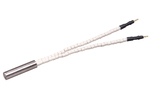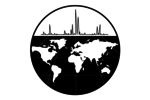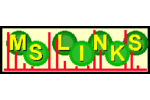- ▶
- Heaters/Source
- ▶
- Agilent Heaters and SensorsMass Spectrometry, Scientific Supplies & ManufacturingScientific Instrument Services 5973 Source Heater Tamper Resistant Allen Wrench 5973/5975 Quad Sensor 5985 Source Heater Assembly Agilent Interface Heater Assembly 5971 Interface Heater

- ▶
- LiteratureApplication Notes Adsorbent Resins Guide Mass Spec Tips SDS Sheets FAQ MS Calibration Compound Spectra Manuals MS Links/Labs/ Organizations MS Online Tools Flyers on Products/Services Scientific Supplies Catalog About Us NextAdvance Bullet Blender® Homogenizer Protocols Micro-Mesh® Literature Instrumentation Literature Agilent GC/MS Literature SIS News / E-Mail Newsletter NIST MS Database - Update Notifications

- ▶
- MS Links/Labs/ OrganizationsIndependent Service Technicians Mass Spectrometer Service Labs University Mass Spec Laboratory Facilities Training & Courses Professional Mass Spec Groups, Meetings Academic Sites Government Sites Mass Spectrometry and Chromatography Companies Other Web Sites Local U.S. Chromatography Discussion Groups Employment Opportunities at SIS or Other Locations Exact Masses and Isotopic Abundances of the Elements

- ▶
- University Mass Spec Laboratory Facilities (This Page)
If your group is not listed here and you would like to have your group listed please let us know. We would be glad to list any university with mass spectrometer facilities. If your mass mass spec laboratory has a Home page, we will hyperlink to it.
British Columbia Regional Mass Spectrometry Center
Located in the Chemistry Department at the University of British Columbia. The Centre provides analytical services to over 50 research groups at UBC as well as to other academic and industrial groups in North America. Currently, there are 8 mass spectrometers in the Centre, including quadrupoles, ion trap, double focussing systems and a TOF unit. In addition, there are GC and LC systems interfaced to some of the ms units.MS techniques include EI, CI, DCI, FI, FD, FAB/LSIMS, MALDI, ESI, TSP, MSMS via ion trap or hybrid system.
For further information contact:
Guenter K. Eigendorf, Director Phone: 604-822-3235 E-mail: eigen@chem.ubc.ca Fax: 604-822-2847
King's College London - MS Facility
(4/06)Mass Spectrometry Facility UC Berkeley
Located at 8 Lewis Hall and open to all members of the College of Chemistry(9/25/95)
CST Mass Spectrometry Team
The Mass Spectrometry Team in CST-8 is equipped with two state-of-the-art Thermal Ionization Mass Spectrometers (TIMS) one of which has negative ion capabilities, a new double-focusing Glow Discharge Mass Spectrometer (GDMS), a magnetic sector Gas Mass Spectrometer, and associated subsystems. The MS Team personnel perform sample preparations including ion-exchange separations on a variety of radioactive and non-radioactive samples.Team Leader and Point of Contact: E. Larry Callis
(9/25/95)
University of California, Riverside - High Resolution Mass Spectrometry Facility
We have offered mass spectrometry services to all users since 1984.(10/08)
University of Georgia Research Service Department
Browse our Central Research Store catalog including graphics of inventory items or order an oligo or have a DNA sequence from our Molecular Genetics Facility. One and all are invited to take a stroll through the page listing. If you experience a problem or have a question please contact:Lamar Houston
Phone: 706-542-2411
E-mail: LHouston@uga.cc.uga.edu
Fax: 706-542-5976
Mass Spectrometry at the University of KANSAS
The Mass Spectrometry Laboratory, available to all University Research workers, provides a variety of analytical services to augment and support research projects.
The laboratory operates four instruments; two Nermag quadrupole mass spectrometers, a VG ZAB high-resolution double-focusing magnetic mass spectrometer, and a VG Autrospec-Q tandem hybrid instrument.
(9/25/95)
Liege University Laboratory
Contact: Prof. De Paul Edwin Chemistry Institute, B6 Liege University B4000 Liege Belgium Phone: 32-41-663415 Fax: 32-41-663413 E-mail: depauw@gw.unipc.ulg.ac.be
We are a University Laboratory working at the same time directly as a contract laboratory for trace and structure analysis in the field of environmental and biological sciences.
MS: AutospecQ (GC, LSIMS, ESI), Platform (ESI, APCI), VG70 (Direct inlet), MD 800 (routine GC)
Others: supercritical fluid extraction
We have a good experience in dioxin and other trace compounds analysis for process control and compliance to regulations. We also act as subcontractor for a private company active in the field of drug metabolism studies (Advanced Technology Corporation), within a GLP frame.
(9/18/95)
Mass Spectrometry at LOUISIANA State University
Contact: Dr. Patrick A. Limbach232 Choppin Hall
Dept. of Chemistry
Louisiana State University
Southampton University, Department of Chemistry-Mass Spectrometry
Please link to this site for information on instrumentation, mass spec interests publications, and ionisation techniques and instrumentation.Contact: John Langley
Mass Spec Facility
Southampton University Department of Chemistry
Tulane University, Cooridanted Instrumentation Facilit, New Orleans, LA
Our facility has three mass spectrometers along with several other instruments. Please link to our site for further information.University of MICHIGAN Protein and Carbohydrate Structure Facility
Address: 2560 MSRB II 1150 W Medical Center Dr. Ann Arbor, MI 48109-0674 Contact: Rachel Ogorzalek Loo, Ph.D. Phone: 313-763-6734 Fax: 313-936-2638 E-mail: loo@brcf.med.umich.edu Philip Andrews, Ph.D. Phone: 313-936-1137
Services: Electrospray and laser desorption mass spectrometry, Liquid chromatography/mass spectrometry
(9/17/95)
NCSU Mass Spectrometry Facility
North Carolina State UniversityThe Mass Spectrometry facilities at NCSU currently consist of two labs, both located on the main campus.
One lab houses a JEOL HX-110 high resolution, double focusing, magnetic sector mass spectrometer. The second facility utilizes a HP 5985 GC/MS system to perform sample analysis.
Feel free to email or phone us with any questions you might have about the Mass Spectrometry Facilities or our services.
Contact: Dr. Carol A. Haney, Dir. Phone: 919-515-6279 e-mail: mass@chemdept.chem.ncsu.edu Fax: 919-515-5079 Address: NCSU Dept. of Chemistry Box 8024 Raleigh, NC 27696-8204NCSU Mass Spectrometry Facility Links
Northwestern University IMSERC
(combined Mass Spectrometry, NMR, X-Ray Crystallography cores) accepts external projects. Please use the links to see our instrumentation and examples of services we provide. Feel free to contact us if you don’t find what you need or if you want to discuss the specifics of your projects.
Contact: Andrew Ott - Director, Integrated Molecular Structure Education and Research Center (IMSERC) Phone: 847-467-1622 e-mail: a-ott@northwestern.edu s-mail: Department of Chemistry Northwestern University 2145 Sheridan Road Evanston, IL 60208-3113NWU IMSERC Mass Spectrometry Facility Links
Nebraska Center for Mass Spectrometry
University of Nebraska in Lincoln - Department of ChemistryThis site is home to six mass spectrometers to provide a wide range of analytical capabilities.
Three Kratos/MSI MS-50 high resolution mass spectrometers. These double focussing magnetic sector instruments are used for both low and high resolution mass measurements. The instruments can be used for EI, CI and FAB experiments.
VG AutoSpec high resolution mass spectrometer. A magnetic sector instrument that can be used in conjunction with EI, CI, FAB, and ESI. In addition, the instrument is configured for tandem mass spectrometry utilizing an orthogonal time-of-flight (oa-TOF) mass spectrometer for MS-II.
VG Platform mass spectrometer. A quadrupole mass spectrometer dedicated to ESI analysis.
Bruker Bench TOF mass spectrometer. A time-of-flight mass spectrometer dedicated to MALDI analysis.
(3/1/96)
The University of Notre Dame Mass Spectrometry Facility
Department of Chemistry and BiochemistryThe Mass Spectrometry (MS) Facility, locate at Stephan Hall of Chemistry and Biochemistry, provides MS-related services, support and research to investigators within the Department of Chemistry and Biochemistry, The College of Science, and The Notre Dame Radiation Laboratory, a US Department of Energy research center on campus. Request for MS services are also taken from outside sources.
The MS Facility maintains a JEOL JMS-AX505HA and a Finnigan-MAT 8430 high resolution, magnetic sector mass spectrometers. Several modes of ionization are available to analyze a variety of sample types including volatile organics, inorganics, and biomolecules. In addition, GC-MS, LC-MS, and linked-scan experiments can be performed.
(9/25/95)
Rutgers University, Center for Advanced Food Technology
The Mass Spectrometry and Chromatography Support FacilitySupporting Research and Development
Experienced technical staff and state-of-the-art equipment make the mass spectrometry support facility at the Center for Advanced Food Technology (CAFT) a valuable resource for tackling some of the most complex and intriguing problems facing the food industry today. Located at Rutgers, The State University of New Jersey, the $2.5 million facility is designed primarily for university scientists, and is available to support researchers from the food, chemical and pharmaceutical industries. The facility focuses on special research-oriented problems, and does not compete with work that can be accomplished at commercial locations.
The facility is uniquely equipped to tackle those challenging analytical tasks which demand the highest caliber equipment and expertise. Using the most precise instruments avialable in the field today, including high-field magnetic spectrometers capable of accurate mass measurements, the center's scientists and technicians explore the realm of biomolecules, including polypeptides and oligosaccharides.
The facility's equipment and technical expertise can be used, for instance, to help a company research the nature and quantity of foreigh compounds in samples that may be causing off-flavors, discoloration, or other irregularities.
For each application, the technical staff selects the appropriate instrument and technique to break down a given sample, and then analyzes the resulting data. Users receive detailed written reports describing both the procedure and the outcome.
The Established Facility Since 1985, CAFT's Mass Spectrometry Support Facility has tackled beyond-routine analyses for the federal Food and Drug Administration, the US Dept. of Agriculture, the NJ Dept. of Consumer Affairs, and more than 150 companies from NJ and across the nation.
Equipment housed at CAFT's Mass Spectrometry Support Facility include a VGZAB-T Tandem High-Resolution Mass Spectrometer, a four-sector tandem mass spectrometer equipped with a 40 KV cesium ion gun for liquid secondary ion mass spectrometry (LSIMS), has array detection for ultra-high sensitivity determinations. The instrument will determine the molecular weights and structures of many organic molecules including small proteins and other biomolecules. It will sequence molecules such as peptides and their adducts, and determine the structures of other intermediate molecular weight molecules using high-energy collisions to fragment the molecules of interest. This instrumentation is also equipped with direct probe capabilities including the capability to do exact mass calculations at high resolution.
Finnigan-MAT 8230 High-Resolution Magnetic Sector Mass Spectrometer, an ultra-high sensitivity system equipped for GC-MS, DCI and EI and CI high-resolution analyses. The instrument separates chemical compounds on the basis of boiling point and polarity and identifies them by mass up to 1,000 Daltons. Special short-path thermal desorption devices developed by Dr. Tom Hartman add significant scope to the analyses of impurities and components in foods, pharmaceuticals, and other matrices.
Liquid Chromatograph Spectrometer (VG Platform II) separates compounds on the basis of polarity and solubility rather than boiling point, making it ideal for nonvolatile and heat-sensitive compounds. The LC-MS also identifies compounds by its mass-to-charge ratio (m/z) up to m/z 3000. Two ionization techniques, electrospray and atmospheric pressure chemical ionization, allow the determination of a wide range of molecules, including peptides and proteins weighing up to 50 kilodaltons. A particle beam interface is available for obtaining EI-MS of non-volatiles.
Expert Management Dr. Thomas G. Hartman, an instrumentation specialist with expertise in mass spectrometry and othe analytical techniques is responsible for the mangement of the facility. The support facility is administered by Dr. Robert Rosen, a nationally recognized expert in mass spectrometry with special skills in separation science and identification techniques.
Contact: Dr. Thomas Hartman Mass Spectrometry Support Facility Center for Advanced Food Technology Cook College, PO Box 231 New Brunswick, NJ 08908-0231 Phone: 908-932-9686 x327 or x328 Fax: 908-932-8690 http://foodsci.rutgers.edu/caft/
Southern Illinois University Mass Spectrometry Facility
The Mass Spectrometry Facility at Southern Illinois University is a university-wide facility, supported by the Coal Research Center and the College of Science. It has two instruments available, a high resolution double sector Kratos MS80RFA mass spectrometer and a low resolution Perkin Elmer Gas Chromatograph - Ion Trap Detector Mass Spectrometer.A purge and trap system is also available for use with the G-C-MS for aqueous solutions containing volatile samples; e.g., MS analysis of herbicides or pesticides in water samples.
Also available is elemental analysis using state of the art inductively coupled plasma atomic emission spectrometry. Several instruments are available including a Leeman Labs ICP2.5 and a Varian Instruments Liberty 220 ICP.
The facility provides services to researchers on SIUC campus as well as to private sector.
The facility is located on the third floor, in room 301 of the Neckers Building on SIUC's Carbondale campus.
Contact: John A. Koropchak, Director
SIU Mass Spectrometry Facility Submission Forms
(9/25/95)
UCLA Center for Molecular and Medical Sciences Mass Spectrometry
A new facility located in the recently completed Molecular Sciences Building on the UCLA campus. The Center is jointly supported by the Departments of Chemistry & Biochemistry (College of Letters and Sciences) and Psychiatry & Biobehavioral Sciences and The Neuropsychiatric Institute (School of Medicine). The Center is a research and service facility available to all members of the UCLA campus and elsewhere. The available equipment has the capability of analyzing a diverse array of organic and inorganic molecules including compounds of biological origon such as peptides and proteins and carbohydrates. One high resolution magnetic sector instrument is reserved for solid probe analyses via El and Cl for accurate mass determination; a GC will be interfaced to this instrument in the near future. Two high resolution magnetic sector instruments are reserved for analyses by Fast Atom Bombardment; one of these instruments is fitted with a zenon gun and the other is fitted with a caesium ion gun. One triple quadrupole instrument is reserved for electrospray ionization; this instrument has a dedicated HPLC. The Center also contains two quadrupole GC/MS instruments, one for El only and the other fitted with El and Cl capability and with positive and negative ion detection. A laser desorption-time of flight instrument will be acquired in the near future to complete the suite of available ionization techniques.(9/25/95)
University Hygienic Laboratory
Offers sample analysis as a service. Please link to our home page which has information about many of our services.
Contact: Terry Cain Oakdale Campus Iowa City, IA 52242 Phone: 319-335-4500 Fax: 319-335-4600 E-mail: tcain@uhl.uiowa.edu
Washington University Mass Spectrometry Resource
The mass spectrometry resource at Washington University-St. Louis is a merger of the former NSF Midwest Center for Mass Spectrometry (founded in 1978 at the University of Nebraska) and the Biomedical Mass Spectrometry Resource (founded in 1976 at Washington University). The new resource, which was formed in 1994 and is supported by the NIH National Center for Research Resources is committed not only to service but also to basic and collaborative research in mass spectrometry and to education of graduate and postdoctoral students in the field.The Resource has two arms: one is the Dept. of Chemistry and one in the Medical School. Each facility has a comprehensive list of equipment and services. Please link to this web site for more detailed information.
Contact at Chemistry Arm: M. L. Gross, Dir. Phone: 314-935-4814 e-mail: mgross@wuchem.wustl.edu Contact at Medical School Arm: John Turk, Dir. Phone: 314-362-8190 e-mail: jturk@imgate.wustl.edu(9/25/95)
University of Washington, Biological Mass Spectrometry
Department of Molecular BiotechnologyThe Biological Mass Spectrometry Lab at the University of Washington's Department of Molecular Biotechnology is located in the new K-wing of the University of Washington's Medical Center.
Contact: John Yates, II Phone: 206-685-7335 Fax: 206-685-7344 Dept of Molecular Biotechnology University of Washington Box 357730 Seattle, WA 98195-7730(9/25/95)
Wayne State University - Mass Spectrometry Facility Dept. of Chemistry
5101 Cass Avenue
Detroit, MI 48202
(313) 577-3072 (Lab)
We have a wide range of capabilities that couple GC and LC separations with mass spectrometry including: accurate mass analysis by EI or CI including high resolution GC-MS (MS80 sector and GCT TOF), MALDI-TOF and electrospray analysis of biomolecules, synthetic polymers, and organometallics (Ultraflex TOF & QuattroLC), Electrospray/APCI for direct injection, LC-MS/MS and low resolution accurate mass studies (QuattroLC triple quad and ZQ single quad).

